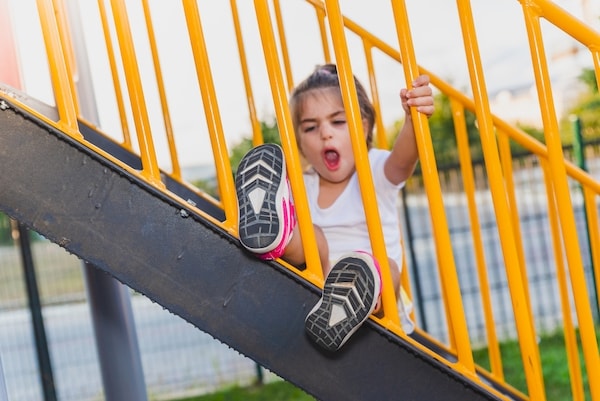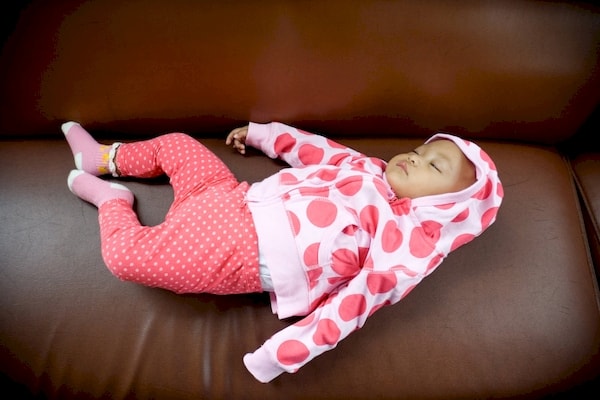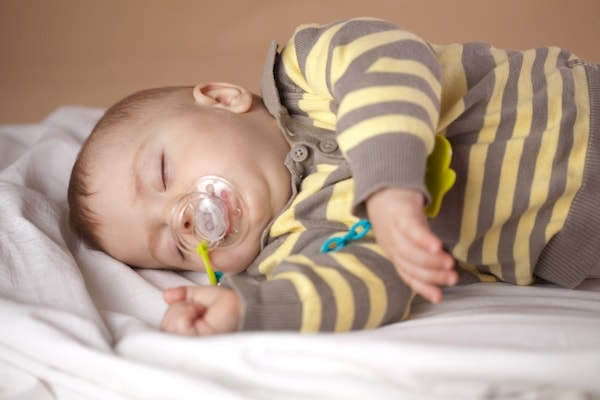How absence of sleep affects your baby's brain and character
A leading scientist on the disposition in babies and young kids said in despair, “When I raised my first kid, I believed behavioral theories saying that what I do as a mom molds my child’s character. With my 2nd kid, I was then a geneticist, and I believed that a kid is born with qualities handed down through heredity and that environmental impact is minimal. I barely knew my third kid at all …”
This analysis was, naturally, overemphasized. However, it demonstrates the continuous quest of scientists and parents to answer this concern: what determines the character and individual characteristics of the kid?
The question of genetics (“She got her shyness from her daddy’s household”) versus environment (“If his mom were more strict with him, he would be calmer”) underlies moms' and dads' efforts to understand the influence they have in molding their child.
Updated research points to a complex image: the impact of heredity and environment on the child. Research says that a baby is born with genes that determine how he will look, the color of his eyes, and different illnesses he will be predisposed to. These genes can also significantly influence the character traits they will establish.
Exercise sociability, level of shyness, openness to new situations, and stress and anxiety are among the traits that belong to the genetic predisposition with which infants go into the world. Many parents discover that their kid has unwanted characteristics, especially if they advise them of qualities they dislike about their moms and dads, their spouses, or themselves.
Parents regularly try to combat these characteristics; however, they typically discover a losing battle.
It appears that an essential variable that affects the quality of the relationship between moms and dads and kids is the “goodness of fit” between the child’s qualities and the parents' expectations.
An active child, for example, maybe adored by a dad who values this characteristic; however, merely endured by a father who anticipates a calmer kid.
On the other hand, a quiet, calm child might be considered lifeless or depressive by the first father. At the same time, another dad sees her as ideal.
Incompatibility between parental expectations and the kid’s qualities might lead to frustration and stress in the relationship, especially if the moms and dads try to “remedy” the kid to their expectations.
The Relationship Between Temperament And Sleep.
Every parent can recognize his child’s behavior when he “is up past his bedtime.”
When scientists asked moms and dads to describe this scenario, some said that the child settles down, seems sleepy, goes to sleep on his own, or asks directly or indirectly to go to bed. Other parents said that their child in this situation “climbs the walls,” “is a crybaby,” “is unhappy and anxious with everything,” “doesn’t respond to what he’s told,” or “just does bothersome things.”
Young children respond to exhaustion in substantially various ways.
A state of tiredness is accompanied by decreased activity and apparent sleepiness.
Sometimes the signs can be simply the opposite.
A few of the typical “unfavorable” behaviors of an exhausted kid are basic patterns that characterize behavior conditions.
Research indicates a strong connection between sleep and the child’s character qualities.
Studies have shown that a child who suffers from sleep disorders (difficulty falling asleep, for instance, or lots of awakenings throughout the night) tends to be “harder” in other behavioral domains.
In a study carried out in several sleep labs, a group of nine- to twenty-four-month-old babies whose moms and dads had come for a consultation about their children’s sleep problems. Scientists compared them with a control group of children without sleep conditions. Not surprisingly, they found considerable distinctions in the qualities that the moms attributed to children.
The mothers finished a temperament questionnaire, a sort of “personality” test for young kids.
The mothers ranked their degree of agreement with such sentences as “The child agrees to be dressed and undressed without resisting,” “The kid responds strongly (screams, yells) when disappointed,” and “The child sits quietly when waiting to eat.”
The moms of children with sleep issues described them as more demanding, grumbling, annoying, adversely conscious of various stimuli, and tough to adjust to different circumstances.
Among the characteristics measured in the character survey is the infant’s degree of sensitivity or responsivity to different sensory stimuli (noise, temperature, taste, smell).
Some babies are incredibly conscious of any sensory stimulus, and others only to a particular type of feelings– for example, those who recoil from skin contact.
Many children do not respond in an ideal method to sensory stimuli.
One of the hypotheses that the researcher William Carey examined in 1974 was that infants who experience hypersensitivity to sensory stimuli would establish sleep problems.
Carey’s findings supported the hypothesis, and he declared that the heightened sensitivity to sensory stimuli is hereditary.
A baby has to disassociate himself from the external environment to stop reacting to people, sound, light, and temperature to get to sleep. He also has disassociated from internal signals, such as pain and hunger. Disassociating capability is crucial for preserving uninterrupted sleep and awakenings in response to different stimuli.
A child who is sensitive from birth to any internal or external stimulus will have trouble disassociating from environmental stimuli. This sensitivity will interfere with his ability to unwind and go to sleep quickly. It will trigger him to awaken easily and often.
This connection between sleep and habits continues throughout later childhood.
Studies that analyzed school-aged children discovered a connection between sleep disorders and habits and more basic adaptation issues.
Sleep conditions serve as a sensitive barometer of general adjustment issues among kids and adults.
Sleep conditions are a recognized sign of tension, stress, anxiety, adjustment, and depression. Sleep problems are so prevalent in some habits or emotional disorders that they are included in diagnostic requirements.
One factor that enhances a medical diagnosis of anxiety disorders in a child, for instance, is a sleep condition.
The close correlation between sleep disorders and behavior problems in kids can be described in many methods.
Maybe a child born with a tendency toward problematic habits also establishes sleep problems. At the same time, it is reasonable to believe that significant sleep problems will result in insufficient sleep or sleep deprivation. Lack of sleep may trigger the child to be nervous, impatient, and more challenging to manage.
In addition, a third cause, such as incompatible parenting patterns, may provoke or aggravate both behavior issues and sleep problems.
Researchers regularly see babies or young kids in treatment centers who their moms and dads explain as hyperactive.
The parents use this term delicately, but professionals use it to detect a condition. The professional term is attention deficit disorder, which occurs in older kids.
These babies are referred to as especially active and agitated, require attention, and constantly seek stimuli.
Frequently moms and dads associate their kid’s sleep problems with his wakeful uneasiness. Occasionally a mom and dad say something like, “This young boy has a turbo engine, and he can not shut it down at bedtime,” or “He resembles the Energizer bunny; he keeps going and going and going.”
Hyperactivity is identified at a later age. There is proof that many hyperactive children were overactive, uneasy infants with challenging personalities.
Once again, we face a chicken-or-egg question: are these children not able to sleep like “typical” children because they are uncommonly active, or does their sleep problem underlie their “hyperactivity”?
Sleep disturbance appears to cause “hyper” habits patterns in numerous cases, even though no research study has directly confirmed this truth.
A growing body of evidence demonstrates that the absence of sleep may induce behavior that resembles a hyperactive child.
From a user-friendly viewpoint, we can all remember techniques to keep ourselves awake when we are tired.
These techniques increase our activity, such as fidgeting, adjusting our hands or facial muscles, and other similar methods.
This pattern contradicts the expectation that the tired kid will slow and unwind down.
The medical literature has recorded instances in which substantial sleep issues can cause “hyperactive” behavior patterns and an incorrect diagnosis and treatment later.
It is of utmost importance to examine whether the sleep condition is the source and not the result of the “hyperactivity.”
On the occasion that a sleep disorder exists, it ought to be dealt with before treating the conditions that arise from it.
Sometimes dealing with the sleep disorder might spare the child from receiving unnecessary medication like Ritalin, the most prescribed chemical for kids' behavioral issues.
An erroneous interpretation of a child’s habits can also result when she responds to a sleep disorder with heightened tiredness, indifference, and lack of interest in the environment. This pattern may be interpreted as anxiety, and sleep difficulties can be viewed as the result of that condition.
As the expert literature reveals, such an incorrect diagnosis can fail to discover and treat the primary sleep condition, along with the wrong treatment for depression.
Case studies have shown that when the problem is identified correctly as a primary sleep disorder and treated accordingly, there is a parallel improvement in sleep and the disappearance of the “depressive” signs.
Intellectual Development.
Evaluating intelligence in infancy is a highly complicated task.
Tests utilized on infants to evaluate early psychological capabilities that might be a part of intelligence have generally stopped working on forecasting intelligence or cognitive abilities and achievements in later ages.
Our limited ability to examine babies ' intelligence obstructs the research on the relation between sleep and intellectual development.
Efforts to study this problem have stopped working to supply a clear image of the scenario. We need to call upon additional research studies on older children and adults to consider the issue more methodically.
Scientists from the University of Connecticut in Evelyn Thoman’s group, which has contributed substantially to the research of baby sleep, analyzed this question. They followed babies' sleep throughout their first two days of life and examined their advancement at the age of six months.
After birth, special recording gadgets recorded the babies' sleep in medical facility bassinets.
The researchers then evaluated the babies' mental, motor, and affective abilities at the age of 6 months, utilizing the Bayley Test.
They discovered a correlation between the babies' sleep techniques on their first day of life and their advancement six months later.
Some scientists found a connection between sleep disorders in infancy, particularly those brought on by respiratory issues, and possible shortfalls in intellectual advancement and academic accomplishments later.
Other studies, however, discovered no comprehensible connection between sleep and later on psychological function.
Research studies on older kids and grownups have revealed that sleep disorders or insufficient sleep mainly interferes with cognitive abilities connected with attention and concentration.
That is to say that the capability to concentrate on specific stimuli for an extended time degrades.
Individuals who do not get enough sleep respond slower and make more mistakes on jobs that require attention and concentration. Sleep and attention have not been studied in infants; some support for their connection comes from indirect techniques.
For example, moms explained their infants (aged nine to twenty-four months) experienced sleep issues as having difficulty focusing on specific activities for an extended time and quickly became distracted by other stimuli.
In another research study, sleep researchers examined the relationship between sleep patterns and figuring out skills, concentration, and attention amongst school-aged kids.
The kids' sleep patterns were looked at objectively by utilizing sleep watches, and digital tests examined their learning functions.
Comparable to the studies of adults, they found that children whose sleep quality suffered (as manifested by prolonged or lots of awakenings from sleep throughout the night) likewise had decreased attention capabilities.
These findings support the presumption that sleep disorders amongst children negatively impact these crucial functions for academic accomplishment.
Recent studies have revealed that if “typical” children shorten their sleep for speculative functions, they suffer negative consequences, and their learning and attention capabilities are jeopardized.
Based on what we have learned more about older children and grownups and from the limited information on infants, it is fair to conclude that the intellectual capabilities of infants are challenged by interrupted or inadequate sleep.
You May Also Like
6 Science-Backed Child Sleep Methods
Everything about infant sleep can appear frighteningly high-stakes at …
The Developmental Importance Of Napping For Children
Infant naps aren’t simply precious minutes of adult respite; …
4 Interesting Facts About How Children Sleep
When individuals make use of the phrase “sleeping like a …





